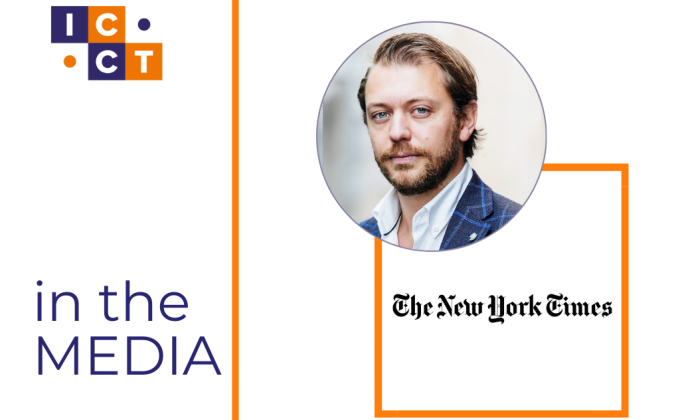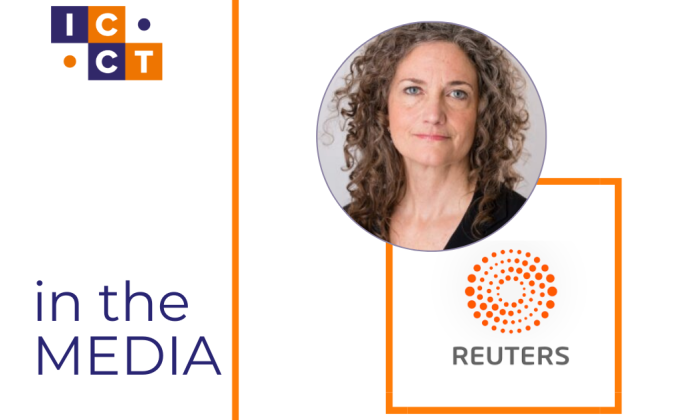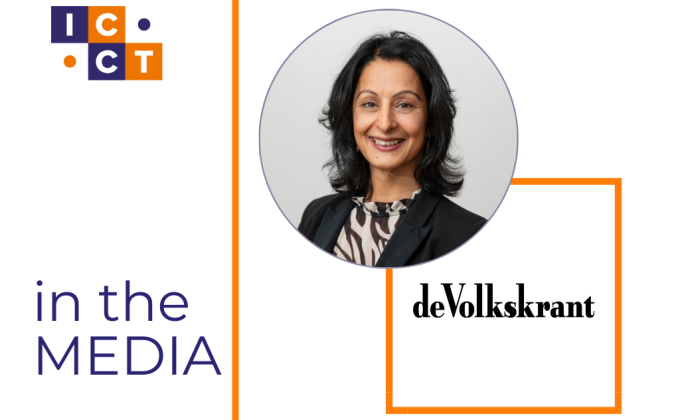Date: Wednesday, 6 November from 13:30 - 17:00 Venue: Clingendael, Netherlands Instituut of International Relations, Clingendael 7, 2597 VH The Hague On Wednesday 6 November, ICCT convened the seminar "Assessing Measures to Combat the Financing of Terrorism", which was held at the Clingendael Institute of International Relations. The seminar gathered six experts with Tom Keatinge (independent consultant), Gavin Sullivan (University of Amsterdam), Lia van Broekhoven (Human Security Collective) and experts from Europol and Interpol. ICCT Research Fellow Dr. Bibi van Ginkel moderated the seminar which looked at the issue of terrorism financing from different perspectives. The meeting began by discussing how international and regional police agencies work to track terrorism financing. Both experts agreed that investigating terrorism financing is incredibly complex. In general, the same tools are used to investigate money laundering and terrorism financing. However the global minimal threshold for money laundering is (in many cases) 10,000, whether it is dollars, euros or pounds. Police experts pointed out that the price to undertake terrorist attacks is either at or below this threshold, such as the Madrid bombing or London public transport attacks and so this compounds the problem of investigating money transfers, which are legally below the threshold. Speakers also discussed the methods criminals employ to transfer money. E-currencies have increased in prevalence in the last decade and when one shuts down, as was the case with the online Liberty Reserve exchange, criminals will just migrate to another form. It was noted that certain questions remain about over the counter (OTC) or high frequency trading. While not necessarily against the law in all countries, both forms of trading can provide opaque ways to transfer large sums of cash. Future forms of illicit money exchanges could also include cloud banking, but as of yet there have been no reported cases of misuse. Europol is instrumental in verifying requests for the Terrorism Financing Tracking Program (TFTP) pursuant to the agreement between the US and the EU in place since August 2010. Europol works with private firms to access data and while there are a number of strict security checks, the data of suspicious activity can be passed to the US Department of Treasury at their request. The TFTP is also utilised in the immediate aftermath of terrorist incidents such as the Breivik attacks. There, TFTP-based information helped Norwegian and other European investigators including Europol to identify within hours the channels through which Breivik collected and moved the funds used for the preparation of his attacks, and further helped consider whether other "Breiviks" were connected with the Norwegian attack. The quick work of the TFTP mechanisms clearly demonstrated their added value. Some of the panellists agreed with the police argument, whilst others highlighted core problems and impacts that terrorist financing measures generate (see below). From the point of view of the private sector and specifically the financial services industry (FSI) it was argued that, in practice, it may seem like the flow of information is only one way. Banks may meet the minimal disclosure requirements or provide certain information, but in some cases do not get enough feedback, or information about the follow-up. There is also a risk that following regulations becomes more about the quantity of the suspicious transactions that are flagged, than about the quality of the scrutiny that takes place before a transactions is earmarked as suspicious. The panellist argued that this could be improved upon by forming transparent public/private partnerships (PPPs). In doing so law enforcement entities could then also utilise the skills the FSI has to offer and harness their innovative technology and techniques. The latter part of the afternoon moved towards a discussion on the various challenges and impacts of terrorism financing measures. The problem with international counter-terrorism sanctions is that many, such as for instance UN Security Resolutions 1267 and 1373, are so sweeping. The difference between these sanctions and others is that they seem both temporally and spatially limitless. Furthermore once a suspected terrorist, whether a person, organisation or non-state actor is listed, it is extremely difficult to be de-listed. While the 1267 committee has set up an Ombudsperson to tackle these issues, the system remains in many ways complex and unfair. Counter-terrorism sanctions can be best understood as a novel form of pre-emptive warfare rather than as conventional tools of coercive diplomacy. Whilst these sanctions have a demonstrable impact, it is unclear whether they are actually effective in achieving their aims and in many cases (such as in Somalia) they are producing significant adverse effects. In terms of impacts on Non-Governmental Organisations (NGOs), the largest concern is that governments may use counter-terrorism financing measures as a tool to target organisations and repress their work. Counter-terrorism sanctions also create a "chilling effect" amongst humanitarian and peace-building organisations working in areas where armed groups maintain a presence. In relation to the Financial Action Task Force (FATF) positive strides have been taken in previous years with conditions more conducive to greater engagement with NGOs, however a lot more work still needs to be done. One panellist argued that it could be helpful to increase the amount of NGOs that have observer status at the FATF. Organisations Global Witness and Transparency International already have this status, but more could be added still. Following a lively discussion with the audience, all of the experts recognised the inherent difficulties with tracking terrorism financing. It was suggested by some panellists that one way to do this was to work toward a comprehensive, inclusive approach. PPPs are crucial to successfully investigating money flows that are used to finance terrorism. It was argued that in order to tackle organised crime and terrorism, those doing so need to be more organised than the criminals themselves and that alienating the NGO-community from the security field may prove counter-productive. Conversely, as some of the measures hinder the work of humanitarians and peace-building organisations and are in conflict with international standards of transparency, there is a certain resistance to these security measures within NGO-circles, because they shrink the operational space for their work and transform it through securitisation. On the other hand, some panellists said that the FSI may continue to look at NGOs with a certain level of suspicion. It was suggested from the audience that unless there is a way to bridge this gap and there is a method to prevent an “us and them” sentiment, the issues cannot be solved because they require the common endeavour of communities and state institutions. One step into the right direction though follows from moving towards a more risk based assessment of the strict requirements of transparency placed upon NGOs. A key problem with this "common endeavour" approach is that it involves security services and NGOs working more closely to co-produce threat intelligence, which undermines the impartiality of humanitarian and peace-building NGOs and increases their operational risks. An important question is how to identify the incentive for all stakeholders in this process, which will motivate them to better cooperate and create a win-win situation. In order to shift towards a shared security paradigm between states and communities/citizens – which was the aim articulated by some of the panellists – it was pointed out during the debate that there is a need for a more complex design of PPPs. In the traditional way these PPPs were seen as the state subcontracting private entities for certain security related tasks. Now, it is relevant to understand PPPs as multi-stakeholder processes with the following characteristics: shared ownership and leadership, dynamic roles and agendas, different interests and strategies but one overarching goal. It was suggested that the concept of human security is, by its very nature, an enabling ground to build these kind of complex partnerships.
November 18, 2013



